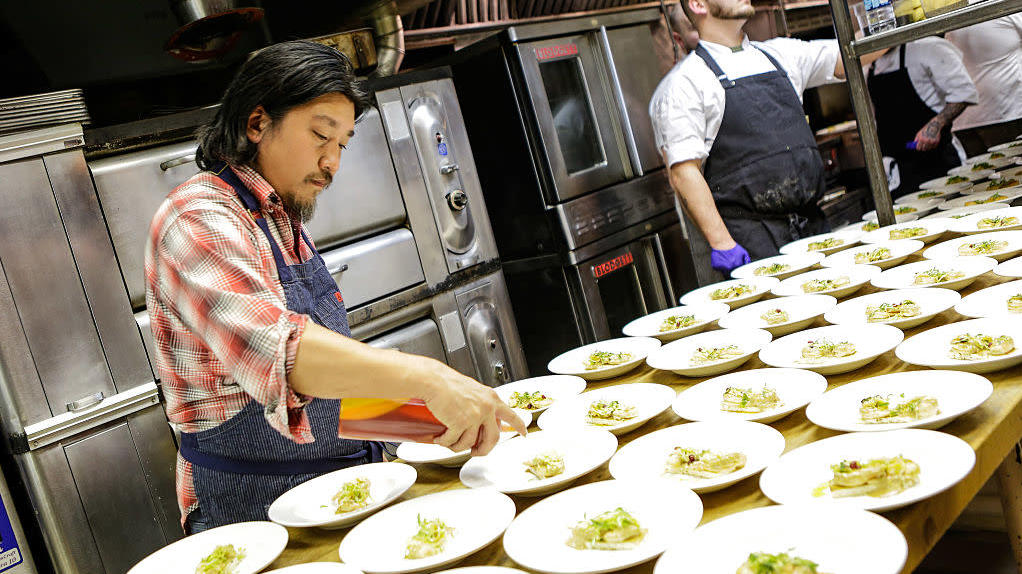One Chef Thinks The Era Of Independent Restaurants Is Over
We've said it almost too many times to count now: the independent restaurant scene is shrinking at an alarming rate, with no signs of slowing down. One chef, Edward Lee, who owns and operates three restaurants in Louisville, Kentucky, and one in Washington, DC, isn't feeling optimistic about what's to come.
Bon Appétit has an interview with Chef Lee, and he takes a solemn tone on the subject. He's had to close multiple restaurants during the pandemic, and it's clearly taking its toll on him, especially since it's become clear that there's no immediate help on the horizon. Every restaurant needs to fend for itself. Currently, for the restaurants Lee still has open, it's been meal kits and an investment into heaters for flaky patio service.
Right now Lee believes that many restaurants either need to take on more debt to survive or to close for a while. From my personal vantage point as a former restaurant cook here in Chicago, I've seen multiple restaurants straight-up close or go into hibernation until the spring in order to get through the dead fall and winter seasons.
For the restaurants that remain open, the real challenge is the unpredictability of day-to-day sales. When I was on the line full-time from the end of spring through the end of summer, there was no telling how many pies I would be firing in a night. Weeknights were devastatingly slow, and you know that when you're the only pizza maker at your station and you can keep up as a lone cook, things are bad. Weekends tended to perk up quite a bit, but when Friday or Saturday bomb in terms of sales, it feels like there's no rhyme or reason to any of it. In pre-pandemic days, it was easier to gauge what you could expect during certain days or seasons. And that's the issue. Why, Lee asks, would you would want to keep a restaurant open when you're doing 15% of your usual sales for the day when it would have been cheaper to stay closed?
And then there's the employees. Hospitality employees have a very specific set of skills that don't necessarily translate into other industries. How can you expect someone who's got talent in the kitchen to go, say, manage a clothing department at Target? As restaurant workers feel abandoned, fewer are going to want to come back, Lee says, and those who do may not have the same positive energy it takes to give customers a good time and a temporary escape from home.
Right now, Lee's main focus is on his nonprofit, The LEE Initiative, which works to provide restaurant workers with financial relief and find ways to provide meals for those who need it the most. Many of my former restaurant colleagues have rallied together to feed industry people in need by opening community kitchens or giving away meals regularly. Trust me: the ones that need the help have been the quietest of all.
I am not too proud to say that when I was waiting to see what would happen early this spring, I applied for financial help from relief funds. That help never came because there was so much demand. I was lucky that unemployment came in until I could get back to work on the line when we reopened. If I was having a hard time back then, there's no telling where I'd be if I were still on the line. As Lee says in the interview, things stand to get worse before they get remotely better.
